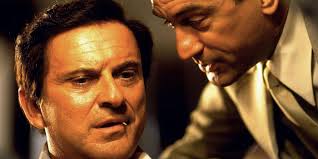“Casino” (1995)

“Casino,” (1995) directed by Martin Scorsese, is a gripping dive into the volatile world of Las Vegas casinos in the 1970s. With a screenplay by Scorsese and Nicholas Pileggi, the film offers an intense look at crime, power, and betrayal in the world of high-stakes gambling. Starring Robert De Niro as Sam “Ace” Rothstein, Joe Pesci as Nicky Santoro, and Sharon Stone as Ginger McKenna, “Casino” is a powerful showcase of performances against a glamorous yet ruthless backdrop.
De Niro’s character, Ace, is a meticulous gambler entrusted with running the Tangiers casino. His relationship with Nicky, a brutal mob enforcer, and his romance with Ginger, a troubled hustler, create the foundation for the story’s drama. Scorsese’s direction perfectly captures Las Vegas’s intoxicating allure while revealing the corruption and violence lurking beneath the neon lights. The character dynamics are riveting: De Niro’s calm, calculating demeanor contrasts sharply with Pesci’s volatile rage, while Stone delivers one of her best performances as a woman trapped in her own destructive cycle.
The film’s technical aspects are equally impressive, with stunning cinematography by Robert Richardson, capturing the opulent casinos and deserts, and a soundtrack filled with classic rock that reflects the era’s intensity. The storytelling is relentless, with fast-paced editing and voiceover narrations that immerse viewers in the characters’ psyches.
“Casino” is a violent and brutal film, but it’s also a meticulously crafted exploration of loyalty, greed, and moral decay. Though it runs nearly three hours, Scorsese’s direction ensures that every minute is compelling. “Casino” isn’t just about gambling—it’s about the human cost of ambition and corruption, making it a haunting, unforgettable experience.











